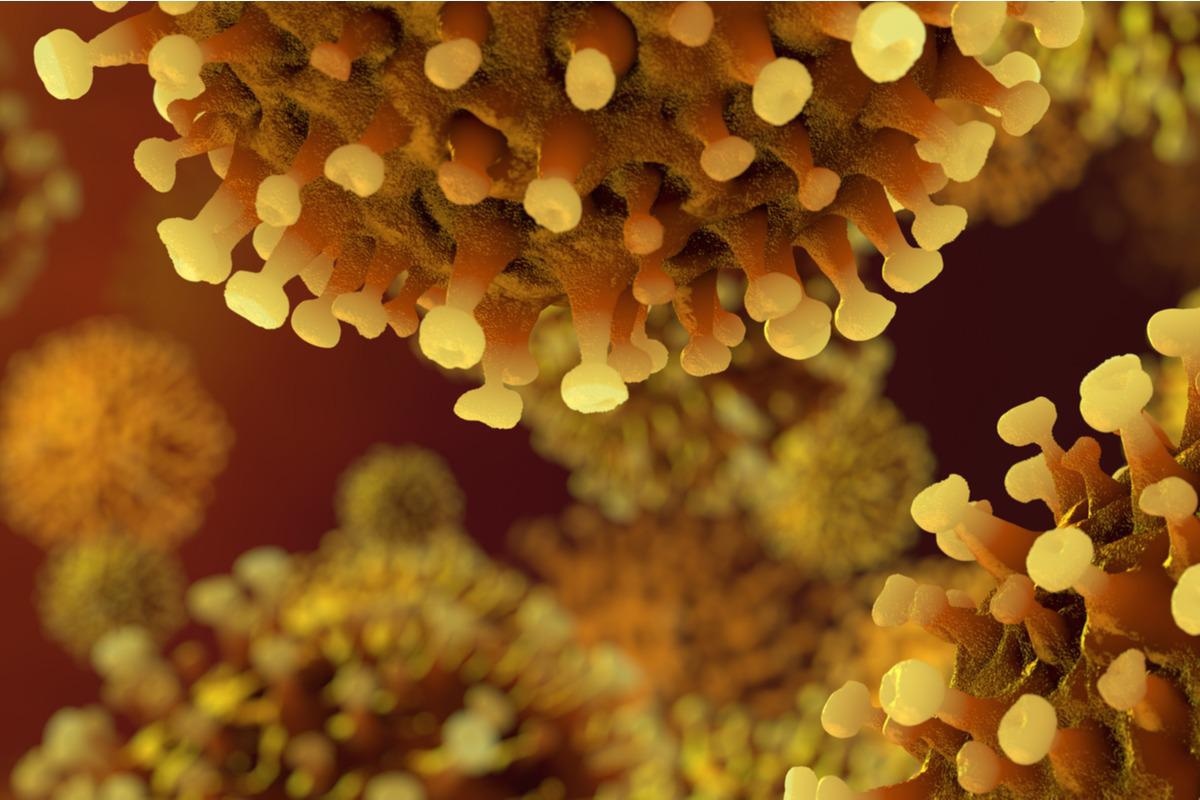In a recent study posted to the medRxiv* preprint server, researchers assessed the variation of severe acute respiratory syndrome coronavirus 2 (SARS-CoV-2) within hosts.
 Study: Shared within-host SARS-CoV-2 variation in households. Image Credit: CROCOTHERY/Shutterstock
Study: Shared within-host SARS-CoV-2 variation in households. Image Credit: CROCOTHERY/Shutterstock

 *Important notice: medRxiv publishes preliminary scientific reports that are not peer-reviewed and, therefore, should not be regarded as conclusive, guide clinical practice/health-related behavior, or treated as established information.
*Important notice: medRxiv publishes preliminary scientific reports that are not peer-reviewed and, therefore, should not be regarded as conclusive, guide clinical practice/health-related behavior, or treated as established information.
Reconstruction of SARS-CoV-2 transmission linkages has become increasingly difficult due to the limited variation in SARS-CoV-2 consensus sequences. While previous researchers have observed variation among individual SARS-CoV-2 infections, there is insufficient data related to within-host variations.
About the study
In the present study, researchers explore the role of within-host diversity of SARS-CoV-2 in transmission linkages to compare the shared within-host variants with individuals having no detectable linkages.
The team obtained samples from a total of four prospective SARS-CoV-2 studies: (1) a prospective household transmission study comprising index cases characterized by a minimum of one SARS-CoV-2 infection confirmed by reverse transcription-quantitative polymerase chain reaction (RT-qPCR) enrolled along with their household members; (2) a randomized, place-controlled, and single-blind trial that evaluated the reduction of the duration of symptoms or viral shedding; (3) a phase 2 randomized controlled trial that evaluated the effect of antiviral favipiravir on viral shedding; and (4) a study that quantified SARS-CoV-2 shedding in a non-invasive mask.
Furthermore, the team obtained nasal swabs for ribonucleic acid (RNA) extraction. Variant calling as well as a consensus sequence generation from raw sequencing reads. The team also identified shared within-host diversity across the nasal samples collected by comparing the unique pairs of samples. Moreover, the team detected a shared intrahost single nucleotide variant (iSNV) and determined the average frequencies of the minor allele at the shared iSNVs in each sample. The researchers also explored the patterns of shared variation among within-host samples from a household transmission study.
Results
The study included aggregated residual nasal swab samples from the four SARS-CoV-2 research studies collected between March 2020 and May 2021. The samples had an average coverage depth of 1714 reads, with almost 99% of the viral genome covered by a minimum of 10 reads. The team noted that the coverage depth was inversely associated with the RT-qPCR cycle threshold, indicating its positive relationship with the viral burden.
The collected nasal samples were distributed across several SARS-CoV-2 linages that were predominant at the time of sampling. An average pairwise distance of 37.4 fixed single nucleotide polymorphism (SNP) was observed, among which 42.3% of the consensus sequences obtained from the same individual differed by zero to one SNP. Moreover, almost 32% of consensus sequence pairs belonged to different individuals residing in the same household and had a difference of zero to one SNPs.
The team also observed that 83.1% of the samples displayed at least one iSNV with a minimum of 1.0% minor allele frequency. Moreover, the number of recovered within-host diversities rose to 20 iSNVs with 0.5% and 27 iSNVs with 0.2% minor allele frequencies. The team also noted that the recovery of the within-host variation showed that minor allele frequencies had a poor correlation among individuals sampled longitudinally.
Consensus sequences sampled from the same host also showed an 8.83 times higher number of iSNVs compared to samples collected from different individuals. The host-specific signature also declined as the minor allele frequency threshold increased. The team also remarked that pairs of persons belonging to the same household shared more iSNVs than individuals belonging to different households infected with the same variant.
Moreover, the application of a stringent minor allele frequency significantly reduced the number of iSNVs detected within a sample. This further reduced the magnitude of iSNVs shared among samples. However, household members were found to share a higher number of iSNVs than unlinked individuals. Furthermore, across all thresholds of minor allele frequencies, pairs of individual samples obtained from the same household also shared higher population diversity than samples obtained from different households infected by the same SARS-CoV-2 variant.
Conclusion
The study findings showed that the variation in SARS-CoV-2 sequences found within individual hosts may be shared by transmission pairs. These shared sequences could potentially contribute information related to transmission linkage considering the diversity present among consensus samples. The researchers believed that the diversities detected among pathogens causing individual infections could improve the resolution of viral transmission inferences.

 *Important notice: medRxiv publishes preliminary scientific reports that are not peer-reviewed and, therefore, should not be regarded as conclusive, guide clinical practice/health-related behavior, or treated as established information.
*Important notice: medRxiv publishes preliminary scientific reports that are not peer-reviewed and, therefore, should not be regarded as conclusive, guide clinical practice/health-related behavior, or treated as established information.